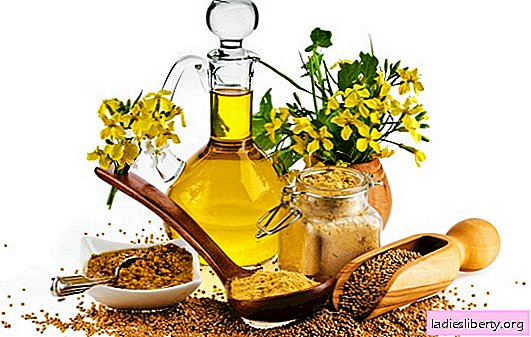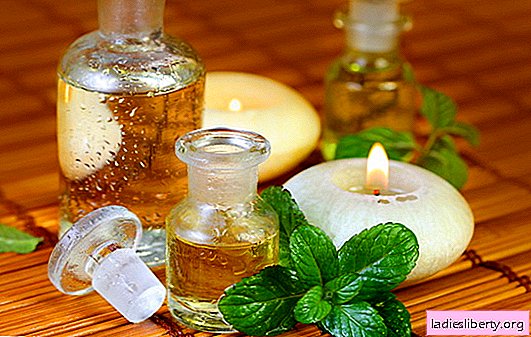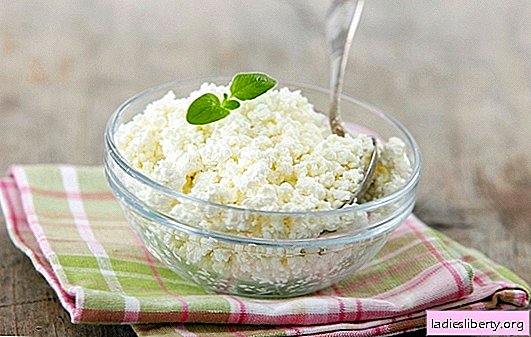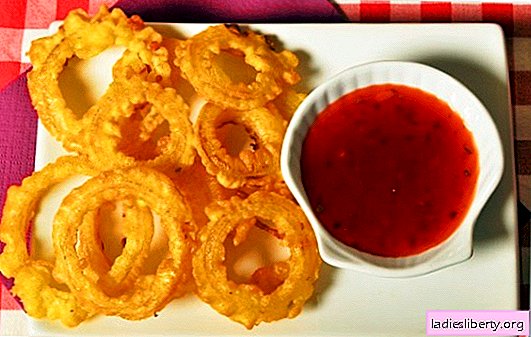
Mustard is one of the most famous seasonings.
It is widely used in various areas of cooking, but this is not limited to its use.
Mustard oil is made from mustard seeds, which, due to its composition, is able to overcome many ailments of the human body.
Mustard oil: chemical composition and useful properties
Mustard oil is called vegetarian fish oil. This is due to the high concentration of useful omega-3 and 6 fatty acids. This feature makes this oil the best nutritional supplement for healing the cardiovascular system. Also, these components normalize fat metabolism and hormonal balance, improve the digestive, reproductive and endocrine systems.
Useful substances that are kept in mustard oil also include:
• vitamins (A, group B, D, E, P and K);
• phytosterols;
• glycosides;
• fintocides;
• chlorophyll;
• mustard essential oil.
Vitamin A is an antioxidant. This is one of the most important vitamins involved in the proper development of the body, therefore it is useful for children. Also, this vitamin helps to cleanse the skin and supports vision.
Fat-soluble vitamin E is called anti-aging vitamin. It plays a major role in the normal functioning of the reproductive system, and also helps to cleanse blood vessels of cholesterol, preventing the appearance of cholesterol plaques.
Vitamin D is extremely important for the human body, especially during the period of active growth. Providing a normal amount of phosphorus and calcium, the vitamin maintains the proper state of bone tissues.
B vitamins are useful for all body systems, because they are the main participants in the brain processes that regulate the functions of all organs. For example, B3 is a regulator of processes in the brain that stimulate the digestive system and the production of sex hormones. B4 is an integral part of nerve fibers. It improves mental abilities, and also participates in the synthesis of substances that prevent obesity in the liver.
Mustard oil is not only rich in vitamin B6, but also contributes to its synthesis in the intestine. This vitamin regulates almost all metabolic processes in the body, and also maintains the balance of female sex hormones.
Vitamin K is the main vitamin for blood. It regulates coagulation, and is also necessary for the absorption of calcium by skeletal bone tissue.
Phytosterols are plant hormones. These phytohormones participate in the metabolic processes of the entire human endocrine system, and also adversely affect the development of cancer.
The bactericidal, healing and antitumor properties of mustard oil are also due to the presence of phintocides, chlorophyll and mustard essential oil.
Mustard oil: useful properties for various diseases
Mustard oil is an effective assistant in the treatment of almost all cardiac diseases. With regular intake of this oil, blood vessels are cleared of cholesterol. This prevents the development of atherosclerosis. Also, the components of the oil increase the elasticity of the walls of the vessels and cope well with the formation of blood clots, preventing strokes. Mustard oil is taken when there is a risk of developing a heart attack, as it helps strengthen the muscles of the heart and the walls of blood vessels.
Mustard oil is used as a stimulant of the motor and secretory functions of the digestive system. The bactericidal and healing effect helps to restore the walls of the stomach after gastritis. Having a choleretic effect, the oil perfectly fights cholecystitis. It is also useful for hepatitis, cirrhosis and liver dystrophy.
Beneficially oil acts on the skin. Improving the function of the epithelium of the skin, it contributes to the cleansing of pores and the healing of damaged areas. This property is very useful in teenage acne, seborrhea, and dermtitis.
Rinses and short-term compresses with mustard oil are used for colds and infectious diseases of the upper respiratory tract. When rinsing the throat, mouth and nasal instillation, the solution with oil envelops their mucous membranes, killing the bacteria.
The oil also works effectively in the treatment of inflammatory diseases of muscles and joints. Providing a warming and moderate irritant effect for external use, mustard oil enhances blood circulation at the site of inflammation. It also anesthetizes and relieves swelling. These properties of mustard oil are useful in the following diseases:
• rheumatism;
• lumbago;
• gout;
• polyarthritis;
• arthrosis;
• sciatica;
• myositis.
Due to the large amount of vitamin D, mustard oil is an excellent tool for the prevention of rickets.
Mustard oil is prescribed as an adjuvant in the treatment of disorders of female reproductive function. It normalizes the balance of female hormones, which is the most important indicator in the treatment of infertility. It is also useful in the treatment of diseases of the ovaries and fibroids. Oil is also beneficial for the male reproductive system. Its components are necessary for the formation of healthy seminal fluid. Also, the use of oil increases the speed of movement of sperm.
Mustard oil: useful properties in cosmetology
Mustard oil is used to care for face, body and hair. In addition to a vitamin cocktail, it is also appreciated by its warming effect.
Oil is often part of cleansing and tonic lotions for the face. They are used as a preliminary tool before applying the mask, as they open the pores, improve blood circulation under the skin. This effect allows maximum absorption of the mask components.
Sprays with the addition of mustard oil enrich the skin with vitamins, even out its color, and also have a lifting effect. This is an important property in aging skin care.
The stimulating properties of mustard are also useful in caring for the scalp. With regular rubbing of the oil, the cessation of baldness is noted, as well as hair growth from sleeping hair follicles.
To eliminate cellulite, mustard oil is added to massage oils. By warming the skin, it improves subcutaneous blood circulation, and as a result, subcutaneous fat deposits go off.
Mustard oil: contraindications
Mustard oil should not be consumed if the sealed package was opened more than six months ago, as it oxidizes and becomes poisonous.
The daily intake of oil is 3 to 4 tablespoons.
Children under 3 years old should not take mustard oil, as it can damage the membrane of the digestive tract.
When mixed with dairy products, fruits, and some vegetables, oil can cause diarrhea. It is better to take it 2 hours after eating these products.
Mustard oil is contraindicated for people suffering from thyroid diseases associated with its hypofunction (for example, hypothyroidism).
An allergy to both mustard products and any nuts is also a contraindication to the use of mustard oil.











